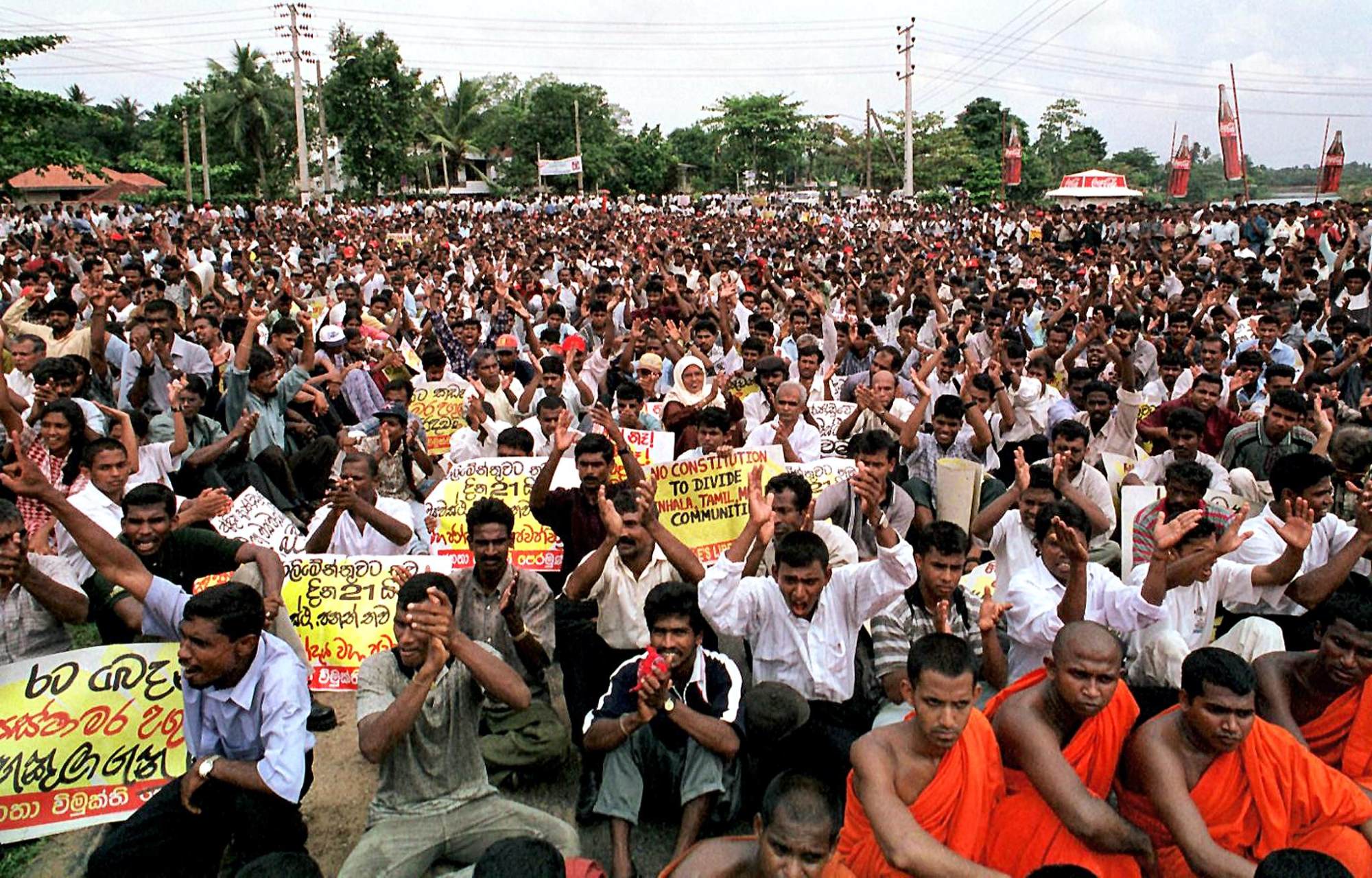Against this backdrop, analysts view Delhi’s outreach to the JVP-led NPP as an attempt to win influence over a political party with a long-held antipathy towards India.
Old adversaries
“NPP is not the ideal scenario for India’s interests in Sri Lanka because the JVP had a well known anti-Indian policy,” said Professor Nirmal Ranjith Dewasiri, head of the University of Colombo’s history department. “But [Delhi] cannot do anything about it.”
JVP’s founding leader, the late Rohana Wijeweera, lectured on “Indian expansionism” during the 1980s, Dewasiri told This Week in Asia, and “India was perceived as an enemy of Sri Lankan interests in those lessons”.
The party also vehemently opposed the Indo-Lanka accord of 1987 – signed by Sri Lanka’s then-president J.R. Jayewardene and India’s Rajiv Gandhi – that aimed to resolve the island’s long-running civil war but instead sparked major protests after it led to an Indian military contingent carrying out peacekeeping operations in the country for three years.
The accord was the catalyst for lawmakers passing that year’s controversial 13th amendment to Sri Lanka’s constitution, which has yet to be fully implemented. Proposed by India as a solution to ethnic clashes between the Sinhalese majority and Tamil minority, the amendment remains an important element of Delhi’s agenda, but many in Sri Lanka see its provisions devolving police and other powers to provincial councils as a threat to national unity.

JVP led an insurrection rooted in opposition to Indian influence over Sri Lanka after the signing of the accord. It was violently put down by government forces.
In contrast to its prior antagonism towards India, JVP would be much more comfortable allying with China given the party’s ideological roots, Dewasiri said. An NPP delegation previously visited China after receiving an official invitation.
Is ‘India Out’ of the Maldives as China-friendly leader Muizzu takes charge?
Is ‘India Out’ of the Maldives as China-friendly leader Muizzu takes charge?
“[India] wants to make sure their regional security network is secure,” Saravanamuttu said.
Following his meeting with National Security Adviser Doval, Dissanayake said on X that they had discussed “regional security and bilateral relations”. External Affairs Minister Jaishankar, in a separate post on the platform, said discussions had focused on the bilateral relationship and the “mutual benefits from its further deepening.”
“India … will always be a reliable friend and trusted partner of Sri Lanka,” Jaishankar said.
We are hoping to transform the country by leading the people, and in this transformation we need international support
Responding to media queries at the airport on Saturday when the delegation returned, Dissanayake insisted that high-level meetings with India did not indicate changes in the party’s “political or economical policies”.
“We can gain a lot from India when it comes to sectors such as information technology,” he said, adding that NPP was hoping for India’s assistance in such areas if it forms a government in future.
“We are hoping to transform the country by leading the people, and in this transformation we need international support … we will need capital and technology. We can’t win as an isolated country, we need to strengthen international relations,” Dissanayake said.
A different JVP?
Professor Jayadeva Uyangoda, a senior political scientist previously with the University of Colombo, believes the JVP has moved away from its anti-India stance over the years.
The NPP coalition it leads has gained immense popularity amid Sri Lanka’s ongoing economic crisis – especially during the mass protests that ousted former president Gotabaya Rajapaksa in 2022.
“There’s a tremendous degree of disappointment, disenchantment, and anger with the unreformable ruling elite,” he said. “The ordinary people of the country want a change.”
There’s a tremendous degree of disappointment, disenchantment, and anger … The ordinary people of the country want a change
NPP has increasingly positioned itself as a credible alternative. “They want to represent the interests of the majority of Sri Lankans, who are poor [or] middle class, and being asked to bear the burden of the economic crisis unfairly,” Uyangoda said.
Meanwhile, the JVP has transformed into a much more pragmatic political entity, attempting to align its policies with a changing world and having shed some of its Marxist principles along the way, Dewasiri said.
Many in the NPP alliance identify as “social democrats”, propagating ideas of democracy with social justice, he said. “Many would say they prefer a system [similar to] that in the Scandinavian countries,” he said.
A China rivalry twist emerges in Sri Lanka’s new US-funded, Indian-built port
A China rivalry twist emerges in Sri Lanka’s new US-funded, Indian-built port
But Saravanamuttu remains sceptical that the JVP has really moved away from its Marxist roots.
“If they’re going to be the government of the country, one should hope so. But we need further reassurances and clarification of policies from them to be able to categorically say that that is the case,” he said.

